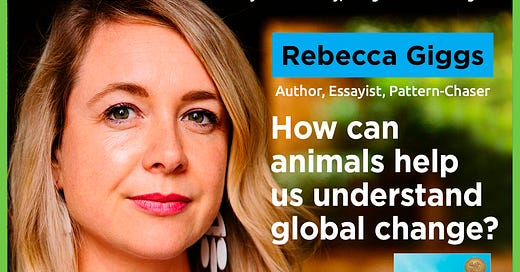What happens when creatures from separate species become aware of each other?
“We ache to meet the limit of the human world, and to look past it,” writes Rebecca Giggs in Fathoms, the book one reviewer described as “the finest book written about whales since Moby Dick, and one of the best accounts I’ve ever read of the interaction, intended and unintended, between humans and other species.”
The title is our first clue from Giggs, an Australian writer drawn to stories at the intersection of culture and ecology. A fathom, after all, is a unit of measuring underwater depth -- six feet, to be precise. But it’s also the attempt to understand something -- a metaphor of reaching out to make sense of the unknown.
Ariel’s song in Shakespeare’s The Tempest, Giggs reminds us, begins: “Full fathom five thy father lies; of his bones are coral made; those are pearls that were his eyes” — a passage that birthed the expression of “a sea change” — i.e. a profound reversal of fortune, perspective, or circumstance from which there is no return.
This is the crux of what Giggs examines -- beautifully, uncomfortably, lovingly — via the long, inosculated history of whales and humans. Whales are “a wellspring of wild wonder to us,” she writes, and yet now they “entomb the history of human enterprise within their bodies.”
What, then, does it mean “to pollute not just places but organisms; and not ‘just’ organisms but beings?”
How can we restore ourselves to right-relationship with the natural world?
And where will the wilderness of the whale — and the wildness of our inner wonder — reside amidst the daily dross of modern life?
Join us this Wednesday -- February 9, at 8pm EST, via this link -- for a special Spark Series conversation with Rebecca Giggs, where we’ll inquire together about how animals can better help us understand global change.
“We struggle to understand the sprawl of our impact,” she writes, “but there it is, within one cavernous stomach: pollution, climate, animal welfare, wildness, commerce, the future, and the past:
“inside the whale, the world. . .”




